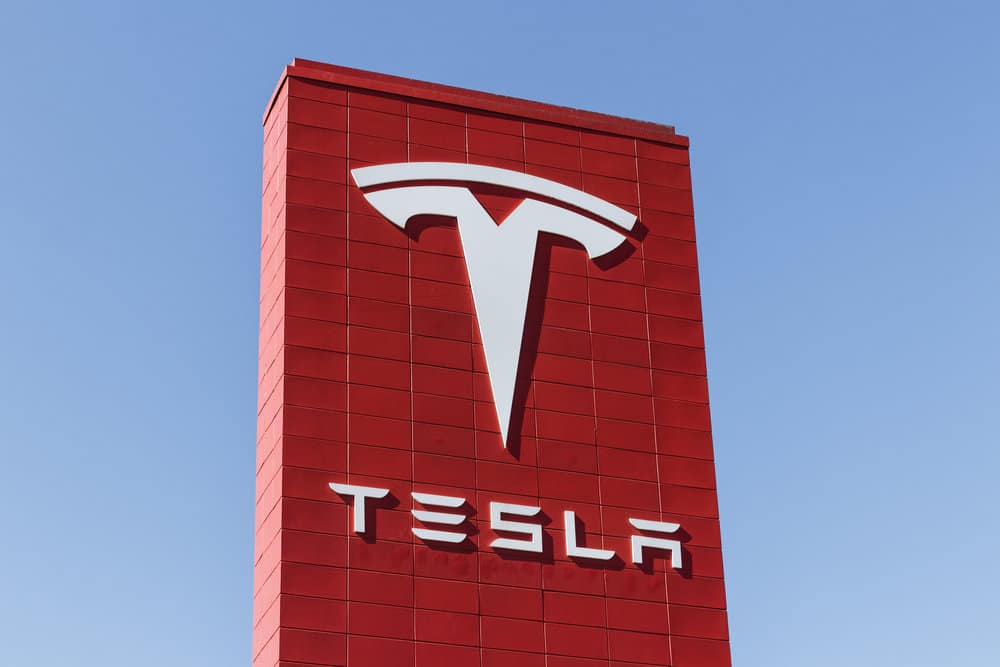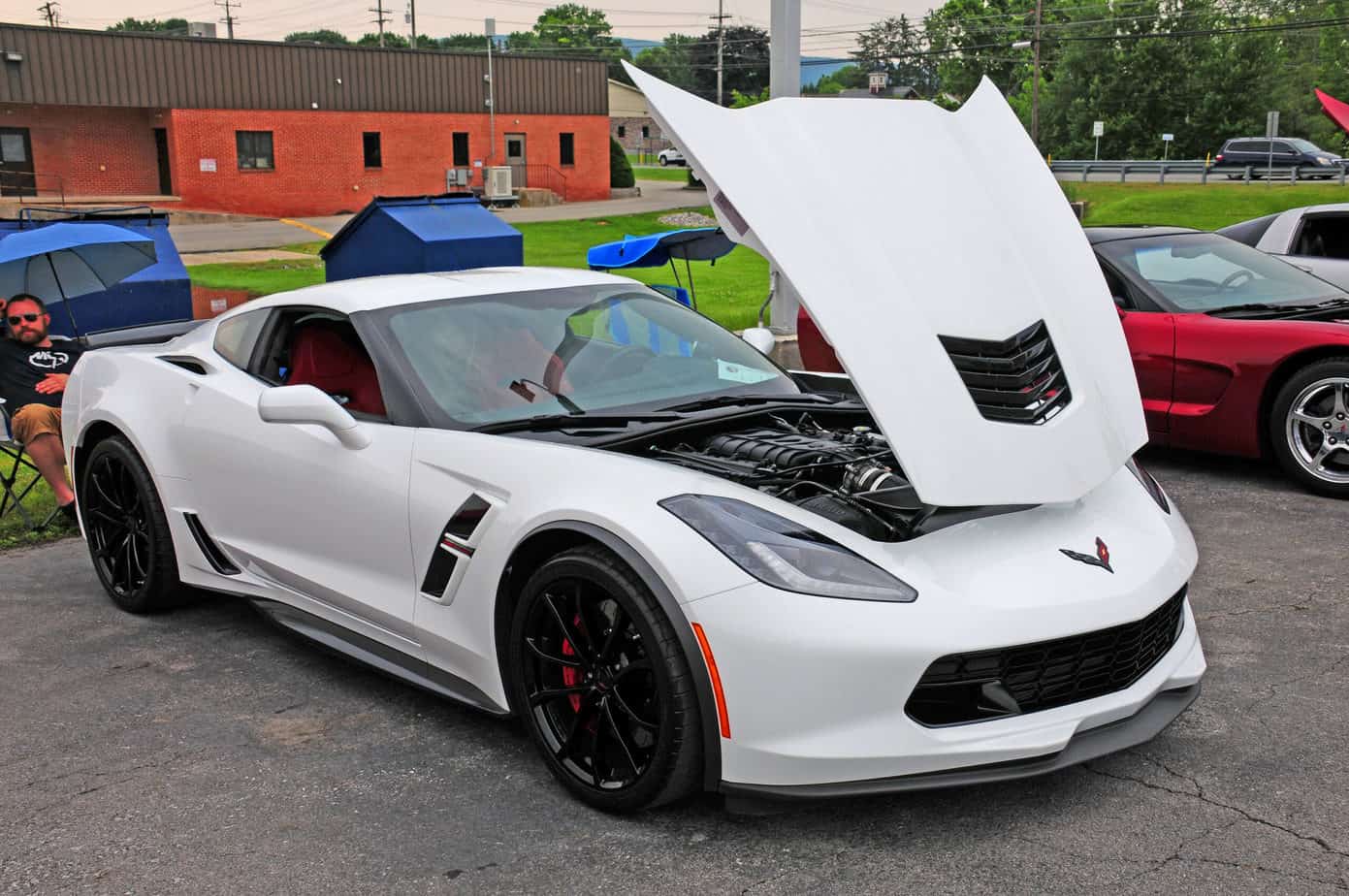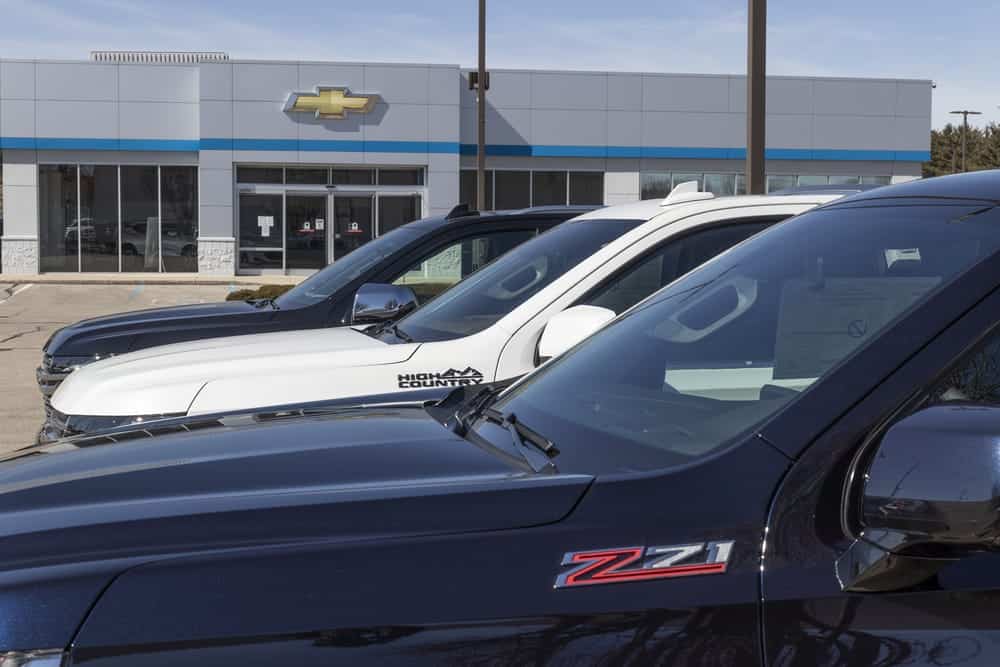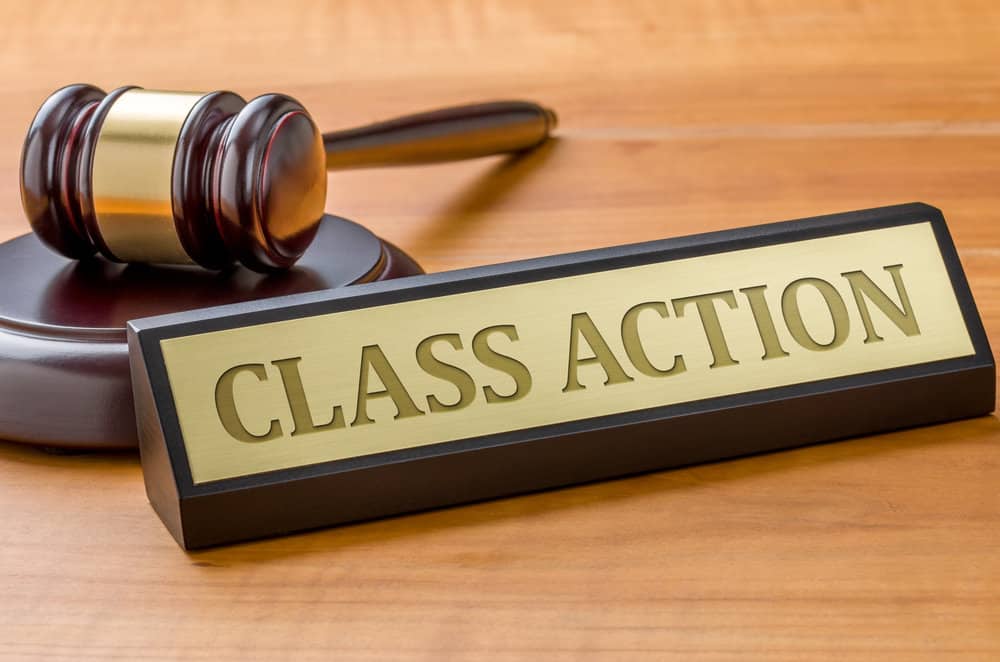Consumers filed a class action lawsuit against Tesla for alleged defects in Model S and Model X suspension components, including control arm assembly components. Consumers who purchased or leased certain Tesla Model S and Model X vehicles with a production date between September 17, 2013, and October 15, 2018, may have important legal rights for compensation.
Current or former owners or lessees of Tesla Model S and Model X vehicles manufactured between September 17, 2013, and October 15, 2018, should be aware that California lemon law and other state and federal laws may force Tesla to either “buy the vehicle back” or provide further significant compensation for those experiencing this suspension defect.
Under California’s lemon law, qualifying “lemons” must be bought back, and that can mean a large cash refund and payoff of your loan or lease. The refund could be as much as everything you paid for the vehicle and everything you owe: monthly payments, down payments, tax, finance charges, license, and registration.
You could even qualify for 2x your money back, depending on the circumstances. What Tesla would have to buy it for has nothing to do with how much the vehicle is currently worth.
The law has a formula that starts with you getting all your money back and then taking certain deductions and exclusions away from your payment. Those refunds and exclusions are challenging to understand and can be fought against by knowledgeable lemon law attorneys.
Tesla Class Action Suspension Defect Claims
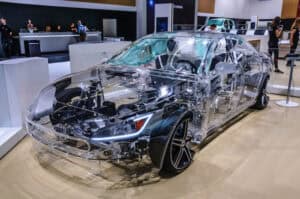 Consumers filed a class action lawsuit over claimed defects in Tesla Model S and Model X suspension components. The Tesla class action lawsuit was filed in the Northern District of California on November 20, 2020, and is captioned Williams v. Tesla, Inc., 4:20-cv-08208.
Consumers filed a class action lawsuit over claimed defects in Tesla Model S and Model X suspension components. The Tesla class action lawsuit was filed in the Northern District of California on November 20, 2020, and is captioned Williams v. Tesla, Inc., 4:20-cv-08208.
The Tesla class action lawsuit alleges that certain Tesla vehicles (Tesla Model S and Model X with a production date between September 17, 2013, and October 15, 2018) purchased or leased in California and Oregon suffer from one or more latent defects in their suspension system. The class action alleges the suspension defect may cause the front and rear suspension control arm assembly components to prematurely loosen, wear, crack, and/or break.
The Tesla class action lawsuit claims the suspension defect can manifest without warning and cause the sudden and unexpected loss of steering control.
Tesla Model S and X class action status
On April 18, 2022, plaintiffs filed a Third Amended Class Action Complaint against Tesla asserting claims under the consumer protection laws of California and Oregon, as well as fraud by concealment and unjust enrichment.
Tesla has denied the claims and filed a motion to dismiss some allegations by one of the plaintiffs in the class action on May 2, 2022, which motion has been fully briefed and is now awaiting a decision by the judge.
The Tesla class action lawsuit is brought on behalf of all current or former owners or lessees of certain Model S and X vehicles who reside in California and Oregon. This class action lawsuit is not brought on behalf of residents of any other state.
No motion for class certification has been filed or other pre-trial dates set, and the class action is not set for trial.
Tesla class action
In a class action lawsuit, if the class is certified by the court, the lawyers who bring the class action will represent you. You will receive notice if the case is certified by the court to proceed as a class action and of your right to opt out of the class by a certain deadline.
If the class action lawyers prevail at trial, you may receive whatever relief the judge or jury awards. But if they lose, you may not be able to litigate individual claims over the issues raised in the class action.
As with most litigation, the vast majority of class action cases settle. If the Tesla class action settles and the court preliminarily approves the settlement, you will receive a class notice describing your options. Those options will be: (a) do nothing, in which case you may get nothing but be bound by the settlement, (b) submit a claim form if requested and get whatever relief is made available and the settlement also binds you, or (c) opt-out and pursue your own claims, in which case you are not bound by the settlement but cannot participate in any of the relief that is being offered to class members.
For most consumers, a class action settlement may provide significant benefits and does not require much effort to participate. It also comes with little to no risk, as the claims have been resolved.
But for others, particularly where they may have had significant damages, opting out and pursuing individual lemon law claims may provide them an opportunity to receive a better recovery in a shorter period of time, but with no guarantee they will get anything in a settlement.
When it comes to vehicle class actions, what to do can be a complicated decision, as it can depend on many factors. These factors include:
- How old is your car?
- Has the defect occurred in your car?
- Have you taken it in for repairs on more than one occasion?
- Do you still own the car?
- Is the car still under warranty?
- Where do you live?
If you are willing to consider the opportunity of getting a greater recovery in a lemon law lawsuit, we are available to help you sort through these questions and make an informed decision.
Tesla suspension defect class action – FAQ
What is the Tesla class action lawsuit name and case number?
Williams v. Tesla, Inc., 4:20-cv-08208
When and where was the Tesla class action lawsuit filed?
The Tesla class action lawsuit was filed in the United States District Court for the Northern District of California on November 20, 2020.
What is alleged in the Tesla class action lawsuit?
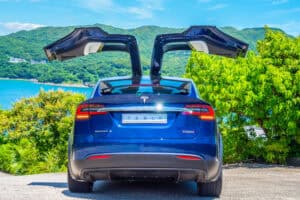 The Tesla class action lawsuit seeks damages against Tesla for breach of warranty and for unfair and deceptive acts and practices pertaining to the design and manufacture of all Tesla Model S and Model X with a production date between September 17, 2013, and October 15, 2018, sold in California and Oregon.
The Tesla class action lawsuit seeks damages against Tesla for breach of warranty and for unfair and deceptive acts and practices pertaining to the design and manufacture of all Tesla Model S and Model X with a production date between September 17, 2013, and October 15, 2018, sold in California and Oregon.
The Third Amended Class Action Complaint alleges the Tesla vehicles at issue suffer from one or more latent defects in their suspension system that cause the front and rear suspension control arm assembly components to prematurely loosen, wear, crack, and/or break.
The class action alleges this suspension defect can manifest without warning and cause the sudden and unexpected loss of steering control.
The class action complaint further alleges that Tesla has not only known about and failed to disclose the existence of the suspension defect to plaintiffs and the class, but it has taken active measures to conceal its knowledge by misrepresenting the cause of the suspension components’ failure.
The class action claims when consumers present their vehicles to Tesla’s service centers to repair failed suspension components. Tesla routinely blames the failed parts on “driver abuse” or “normal wear and tear.”
Plaintiffs also allege that Tesla has acknowledged this defect through its recent safety recall of Model S and Model X vehicles in China, which were produced at the same manufacturing facility in the United States as the Model S and Model X vehicles sold in the United States, before being exported for sale in China.
Plaintiffs assert class action claims under both California and Oregon law on behalf of residents in California and Oregon only.
What Tesla vehicle models are identified in the class action lawsuit?
The class action claims the suspension defect affects all Tesla Model S and Model X vehicles with a production date between September 17, 2013, and October 15, 2018.
How many Tesla vehicles are impacted by the suspension defect?
According to publicly available data, the total number of Tesla vehicles sold nationwide is approximately 151,067. However, most Tesla vehicles are sold in California.
What does the Tesla class action claim is the cause of the suspension defect?
The Tesla class action complaint alleges that Tesla vehicles suffer from one or more latent defects in their suspension system that cause the front and rear suspension control arm assembly components to prematurely loosen, wear, crack, and/or break.
Does the alleged suspension defect violate Tesla’s warranty?
The class action complaint alleges that the Tesla vehicles are covered either by Tesla’s 4-year/80,000-mile New Vehicle Limited Warranty or its 2-year/100,000-mile Used Vehicle Limited Warranty.
While many, if not all, the 2013 and 2014 Model S vehicles have aged out of the stated new vehicle’s limited warranty period, many later model years are still within their warranty periods. The class action also claims Tesla concealed information about the suspension defect from Tesla owners and lessees.
Are Tesla cars with the suspension defect unsafe?
According to the class action complaint, any defect in a suspension system that can cause the front and rear suspension control arm assembly components to prematurely loosen, wear, crack, and/or break is unsafe. According to the class action, Tesla has issued at least three Technical Service Bulletins addressing this issue, but Tesla has not issued a recall to fix the suspension defect.
Have Tesla owners been offered anything to resolve this issue?
No.
What is the status of the Tesla class action lawsuit?
On April 18, 2022, plaintiffs filed a Third Amended Class Action Complaint. Tesla filed a motion to dismiss some allegations in the class action complaint on May 2, 2022, and which motion is now awaiting a decision.
The Tesla class action is pending in Oakland, California, before Judge Haywood S Gilliam Jr.
Has the Tesla class action lawsuit been settled?
No.
Is there anything I need to do at this time?
At this time, the Tesla class action lawsuit has not been settled or certified by the court to proceed as a class action. If you decide you want to bring your own individual claim, you can do so now and opt out when you receive notice. Or the class will be defined as those people who have not filed lawsuits or settled their claims, and you will be automatically opted out of the settlement.
As no settlement has been reached nor a class certified, there is nothing you need to do at this time.
What happens if I don’t opt out of the Tesla class action lawsuit or settlement?
It depends on how any class action settlement is structured, but in general, if you do not opt out of the class or settlement, you will be bound by its terms. You will receive any benefits offered in the settlement, either automatically or by submitting a claim form. However, you will not be able to bring any individual claim for damages caused by the defect, except possibly for personal injury claims.
Why would I opt out of the Tesla class action lawsuit or settlement?
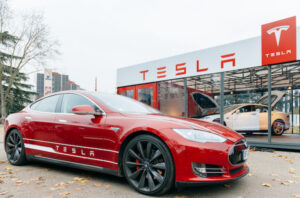 For many people, a class action lawsuit provides them significant benefits without the need to spend any money or do much other than complete a claim form. And because once the matter is settled, as long as the court approves the settlement, you will get the relief described in the class notice.
For many people, a class action lawsuit provides them significant benefits without the need to spend any money or do much other than complete a claim form. And because once the matter is settled, as long as the court approves the settlement, you will get the relief described in the class notice.
However, other people may decide that the relief offered as part of the class action settlement is not adequate, that they do not want to wait to get relief, or that they think they will get more if they do not participate in the class action settlement.
This depends on a variety of factors, such as how old is your car, can you document the defect that occurred in your car, have you taken it in for repairs on more than one occasion, do you still own the car, is it still under warranty and where do you live. Depending on the answers to those questions, while there is no guarantee you will receive any recovery if you opt-out you may have the opportunity to receive significant relief, including a vehicle repurchase and penalties.
What is the Song Beverly Warranty Act?
The Song-Beverly Warranty Act, California Civil Code §1793.2(d)(1), is a California state law that requires manufacturers to repair defects after a reasonable number of repair attempts. What is “reasonable” is not part of hard and fast rules – safety defects should be fixed immediately, for example.
The defects have to be important and must “substantially impair the vehicle’s use, value, or safety.” Civil Code §1793.22(e)(2). Under Civil Code §1793.2(d)(1), manufacturers must promptly offer repurchase or replacement of the vehicle they cannot fix in a reasonable time frame.
In addition, Civil Code §1794(c) and §1793.2(d) provide that customers are entitled to a civil penalty in an amount up to two times actual damages if manufacturers acted “willfully” (meaning knowingly, but not necessarily with wrongful or malicious intent) in ignoring or failing its obligation under Song-Beverly.
Finally, under Civil Code §1794(d), manufacturers such as Tesla must pay the plaintiff’s attorney’s fees and costs as part of the settlement, as the Song-Beverly Act is a pro-consumer fee-shifting statute.
What compensation could I get if I bring an individual lemon law lawsuit?
Current or former owners should be aware that the California lemon law and other state and federal laws may force Tesla to either “buy the vehicle back” or provide other important compensation.
Under California’s lemon law, qualifying “lemons” must be bought back, and that can mean a large cash refund and payoff of your loan or lease. The refund could be as much as everything you paid for the vehicle and everything you owe: monthly payments, down payments, tax, finance charges, license, and registration. In fact, you could even qualify for 2x your money back, depending on the circumstances.
What Tesla would have to buy it for has nothing to do with how much the vehicle is currently worth. There is a formula in the law that starts with you getting all your money back and then taking certain deductions and exclusions away from your payment.
Those refunds and exclusions are difficult to understand and can be fought against by knowledgeable consumer attorneys. Don’t settle for small dollar payments or more possible fixes without speaking to a qualified lemon law attorney with your individual best interest in mind.
There are a lot of factors to consider in deciding whether to pursue individual lemon law claims.
